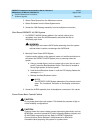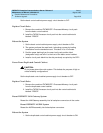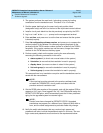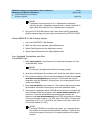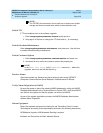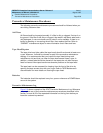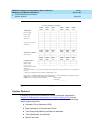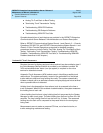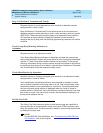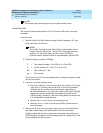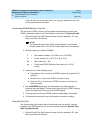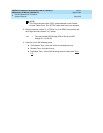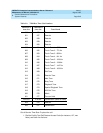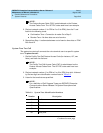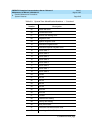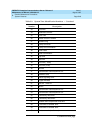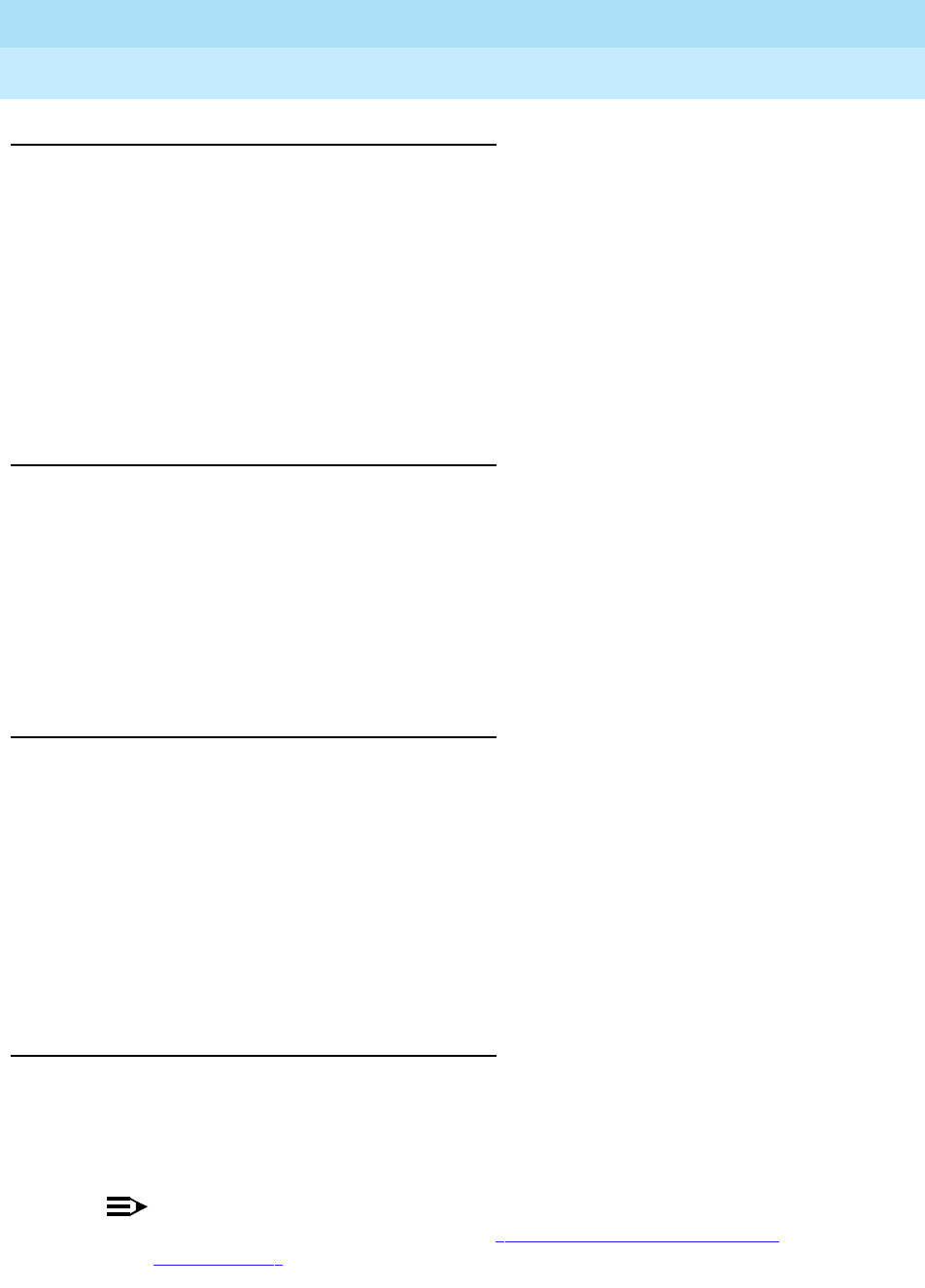
DEFINITY Enterprise Communications Server Release 6
Maintenance for R6vs/si
555-230-127
Issue 1
August 1997
Routine Maintenance Procedures
Page 5-39System Features
5
Busy Verification of Terminals and Trunks
Requires the use of a multi-appearance voice terminal or attendant console
equipped with a "verify" button.
Busy Verification of Terminals and Trunks allows a user at a voice terminal or
attendant console to make test calls to trunks, voice terminals, and hunt groups
(DDC/UCD). These test calls check the status of an apparently busy resource.
This provides an easy method to distinguish between a voice terminal or
resource that is truly busy and one that only appears busy because of a trouble
condition.
Trunk Group Busy/Warning Indicators to
Attendant
Requires the use of an attendant console.
Trunk Group Busy/Warning Indicators to Attendant provides the console user
with a visual indication of the trunk group status for each trunk group associated
with the 12 Trunk Group Select buttons located on the console. Trunk groups
with busy indications during nonbusy periods should be checked to ensure that
the trunks are busy and not out-of-service. Use the Busy Verification of Terminals
and Trunks feature to test the suspected faulty trunks.
Trunk Identification by Attendant
Requires the use of a display-equipped voice terminal or an attendant console
equipped with a "trunk id" button.
Trunk Identification by Attendant allows a voice terminal or attendant console
user to identify a specific trunk being used on a call. This is useful when a user
experiences noise or poor transmission on a trunk call. The trunk identification
(access code and group number) is displayed when the "trunk id" button is
pressed while on a trunk call. Use of this feature is denied if there are more than
two trunks on a call. If the call is trunk-to-trunk, the identification displayed is of
the last trunk added to the call.
Facility Test Calls
The Facility Test Calls feature provides a voice terminal user the capability of
placing test calls to access specific trunks, touch-tone (DTMF) receivers, time
slots, and system tones. The test call can be made by a local voice terminal user
by dialing an access code.
NOTE:
For the ISDN-PRI Test Call feature, see ‘‘Troubleshooting ISDN-PRI Test
Call Problems’’ later in this chapter.



